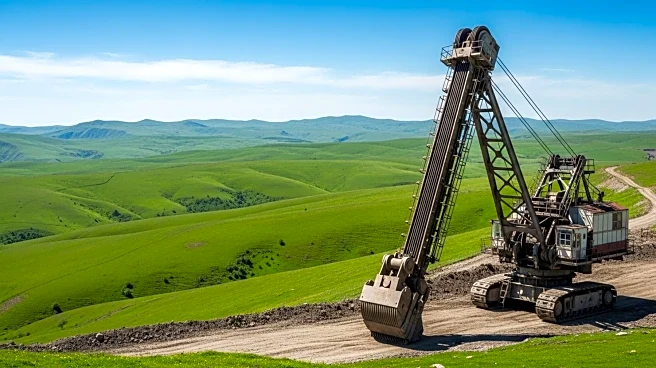What's Happening?
A manganese mine in Georgia is playing a crucial role in Europe's industrial arms race, supplying the metal for green energy technologies and military equipment. However, the mining operations have raised concerns among local residents about environmental and health impacts. The EU's demand for manganese is expected to increase, but the supply chain lacks transparency, leading to calls for stricter regulations to ensure ethical sourcing.
Why It's Important?
The situation highlights the tension between the need for critical minerals to support green energy transitions and the environmental and social costs of mining. The lack of transparency in supply chains can lead to human rights violations and environmental degradation, which are often overlooked in the pursuit of industrial goals. The EU's approach to regulating supply chains will be crucial in balancing these competing interests and ensuring sustainable practices.
Beyond the Headlines
The weakening of the EU's Corporate Sustainability Due Diligence Directive could have long-term consequences for communities affected by mining operations. The push for deregulation may prioritize industrial growth over environmental and social responsibility, potentially exacerbating issues in regions like Georgia. The debate over supply chain transparency and ethical sourcing is likely to continue as demand for critical minerals grows.











